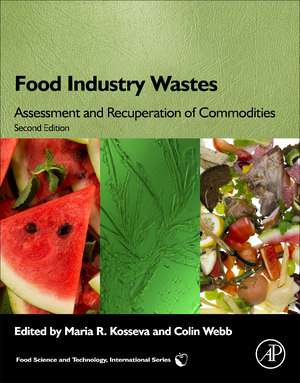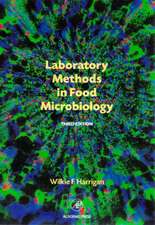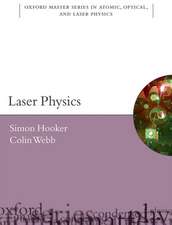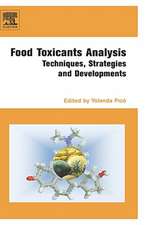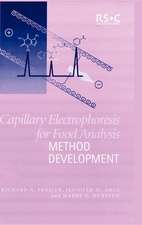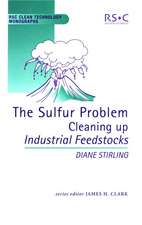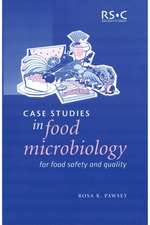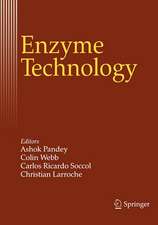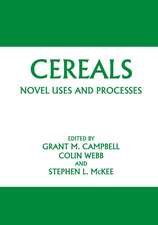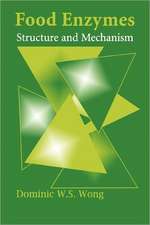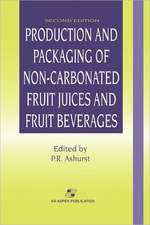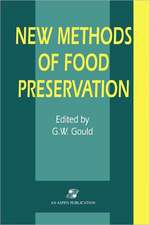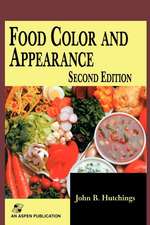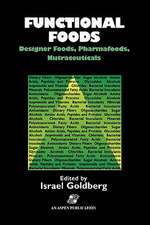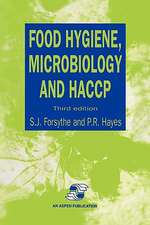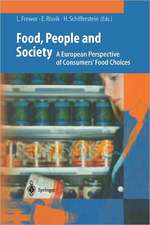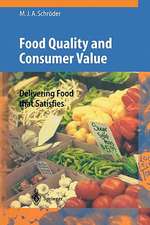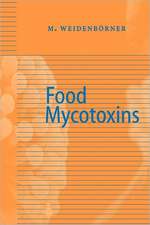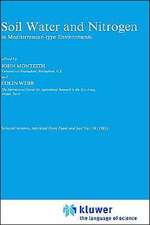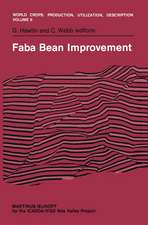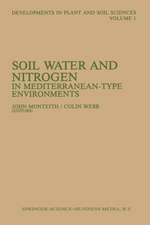Food Industry Wastes: Assessment and Recuperation of Commodities
Editat de Maria R. Kosseva, Colin Webben Limba Engleză Paperback – 6 aug 2020
- Provides guidance on current regulations for food process waste and disposal practices
- Highlights novel developments needed in policy making for the reduction of food waste
- Raises awareness of the sustainable food waste management techniques and their appraisal through
- Life Cycle Assessment Explores options for reducing food loss and waste along the entire food supply chain
Preț: 701.37 lei
Preț vechi: 948.33 lei
-26% Nou
Puncte Express: 1052
Preț estimativ în valută:
134.23€ • 139.61$ • 110.81£
134.23€ • 139.61$ • 110.81£
Carte tipărită la comandă
Livrare economică 07-21 aprilie
Preluare comenzi: 021 569.72.76
Specificații
ISBN-13: 9780128171219
ISBN-10: 0128171219
Pagini: 516
Ilustrații: Approx. 100 illustrations
Dimensiuni: 216 x 276 x 42 mm
Greutate: 1.2 kg
Ediția:2
Editura: ELSEVIER SCIENCE
ISBN-10: 0128171219
Pagini: 516
Ilustrații: Approx. 100 illustrations
Dimensiuni: 216 x 276 x 42 mm
Greutate: 1.2 kg
Ediția:2
Editura: ELSEVIER SCIENCE
Public țintă
Food scientists, food and nutrition researchers, academics, graduate and upper-level undergraduate students, professionals and researchers interested in environmental science and food engineering, technologists, process engineers, waste managers, environmental risk assessors, food chain supervisors, and policy makersCuprins
PART I. Food Industry Wastes: Challenges and Prospects
1. Definitions, measurements and drivers of food loss and waste
2. Effectiveness and efficiency of food waste prevention policies, circular economy and food industry
3. Sources, characteristics and treatment of plant-based food wastes
4. Sources, characteristics, treatment, and analyses of animal-based food wastes
PART II. Treatment of Solid Food Waste
5. Food waste: a potential bioresource for extraction of nutraceuticals and bioactive compounds
6. Valorization of citrus wastes through sustainable extraction processes
7. Solid state fermentation of food industry wastes
8. Microbial production of butanol from food industry waste
9. Inventory of food processing side streams in EU and prospects for biorefinery development
10. Valorisation of rice straw for ethylene and jet fuel production: A techno-economic assessment
PART III. Enhanced Bioprocessing of Liquid Food Waste
11. Biopolymers produced from food wastes: a case study on biosynthesis of bacterial cellulose from fruit juices
12. Fermentation of fruit and vegetable wastes for biobased products
13. Biotechnological approach for valorization of whey for value added products
PART IV. Environmental Assessment and Rehabilitation of Wastewater
14. Accounting for the environmental impact of food wastes on water resources and climate change
15. Application of life cycle assessment to food industry wastes
16. Microbial electrochemical production of energy and value-added chemicals from agri-food wastewater
Part V. Stimulating Innovations and Drivers for Prevention of Food Wastes
17. The dry chain: Reducing postharvest losses and improving food safety in humid climates
18. Market-based tools for reduction of food waste in grocery retail
19. Mathematical modelling approach applied to food waste reduction at retailer and consumer levels in food supply chain
20. Sharing platform and innovative business models: enablers and barriers in the innovation process
21. Management of hospitality food waste and the role of consumer behavior
22. Challenges with food waste management in the food cold chains
Concluding Remarks and Future Prospects
1. Definitions, measurements and drivers of food loss and waste
2. Effectiveness and efficiency of food waste prevention policies, circular economy and food industry
3. Sources, characteristics and treatment of plant-based food wastes
4. Sources, characteristics, treatment, and analyses of animal-based food wastes
PART II. Treatment of Solid Food Waste
5. Food waste: a potential bioresource for extraction of nutraceuticals and bioactive compounds
6. Valorization of citrus wastes through sustainable extraction processes
7. Solid state fermentation of food industry wastes
8. Microbial production of butanol from food industry waste
9. Inventory of food processing side streams in EU and prospects for biorefinery development
10. Valorisation of rice straw for ethylene and jet fuel production: A techno-economic assessment
PART III. Enhanced Bioprocessing of Liquid Food Waste
11. Biopolymers produced from food wastes: a case study on biosynthesis of bacterial cellulose from fruit juices
12. Fermentation of fruit and vegetable wastes for biobased products
13. Biotechnological approach for valorization of whey for value added products
PART IV. Environmental Assessment and Rehabilitation of Wastewater
14. Accounting for the environmental impact of food wastes on water resources and climate change
15. Application of life cycle assessment to food industry wastes
16. Microbial electrochemical production of energy and value-added chemicals from agri-food wastewater
Part V. Stimulating Innovations and Drivers for Prevention of Food Wastes
17. The dry chain: Reducing postharvest losses and improving food safety in humid climates
18. Market-based tools for reduction of food waste in grocery retail
19. Mathematical modelling approach applied to food waste reduction at retailer and consumer levels in food supply chain
20. Sharing platform and innovative business models: enablers and barriers in the innovation process
21. Management of hospitality food waste and the role of consumer behavior
22. Challenges with food waste management in the food cold chains
Concluding Remarks and Future Prospects
Recenzii
"The second edition of the volume presents a multi-vision of the most recent scientific and economic approaches to food waste management. Through numerous cases of study, the book illustrates the ration of food waste alised with chemical and physical methods and emerging biologics developed for treatment and recovery of products. The new edition addresses recyling trends, innovating strategies for the preavoidance of food waste, and also examine the variations of economic efforts to prevention towards this problem in different countries. " --Ingredenti Alimentari
